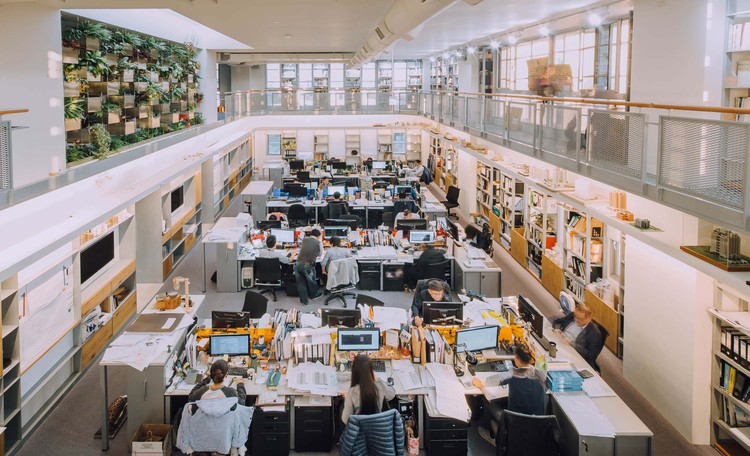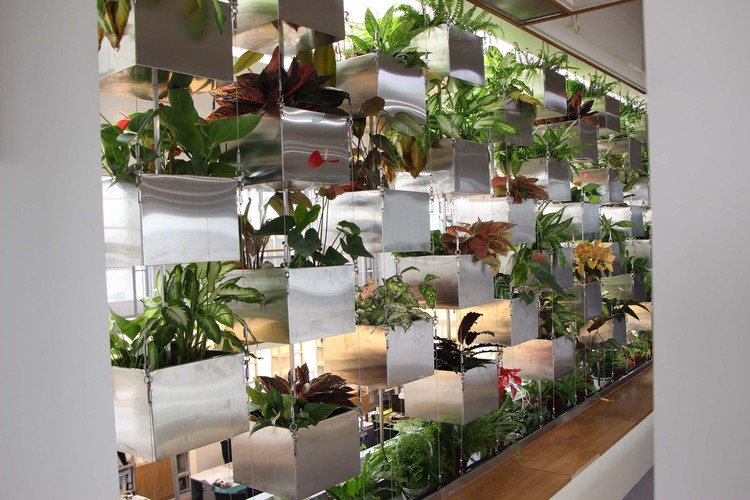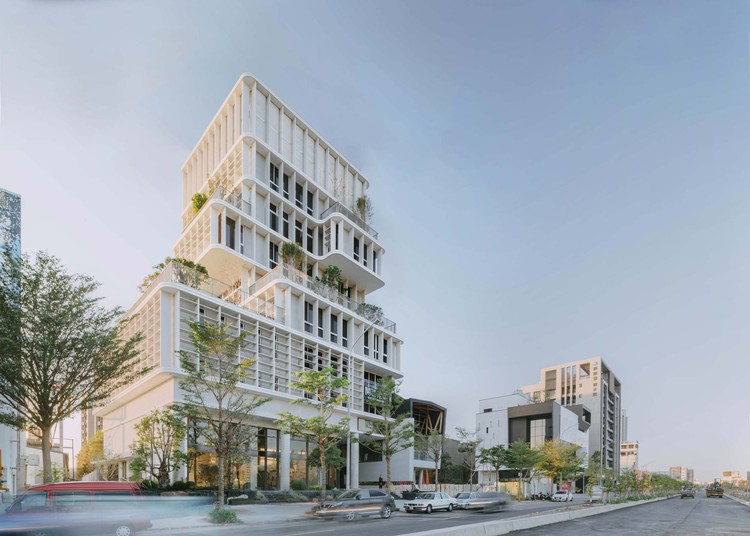
-
Architects: Keywow Architecture
- Area: 3160 m²
- Year: 2018
-
Manufacturers: RHEINZINK, Aica, JPG HOUSING MATERIALS CO., LTD., Shang Kai Steel, Taiwan Muto Co., Ltd.
-
Lead Architects: Kung, Jui-Chi

Text description provided by the architects. A building is not merely a place for fitting variable activities within, it also reveals the relationship between the neighborhood and the building itself. In the meantime, it shall be connected with urban development.
.jpg?1560094493)
The project is a 9-floor office building (7 floors above ground), and is located at the southwestern side of the city near Taichung High Speed Railway Station. The area has been designated as an emerging redevelopment zone which is accessible to any location within the city.

In addition to satisfying basic functional requirements of a building, we try to fulfill architectural concepts that we always consider valuable in response to the physical environment, such as daylight access, ventilation, heat insulation and sun shading. For instance, we use vertical or horizontal sun shading variously on the building facade in consideration of climate and angle of sunlight. That is, we have different solutions dealing with sunlight that comes from different directions.

Reflecting warm subtropical climate in Taiwan, vertical and horizontal sun shading becomes the major element to form the facade of Richgreen Building. Without using sparkling tiles, the synergy between shadow, sunlight, vertical vegetation, and plain material creates unique features of the building.

From technical perspective, we carefully consider about the building structure and the usage of building materials. Despite the fact that the building is mainly built of reinforced concrete, we adopt other structural types such as timber and steel structure in some areas. As for surface materials, instead of using costly materials, we tend to use natural materials and materials that represent local culture, for example, natural stone, timber, cut pebble surface, and close lightly pebble surface, etc.
.jpg?1560136261)
In spite of the fixed floor area ratio given, we enrich the characteristics of Richgreen Building by locating a setback terrace on each floor. This increases not only the height of the building but also its recognizability. In addition, we widely use natural stones and native plants on landscaping since we believe they are correspondent with Richgreen Building and are able to adapt to the environment well.
.jpg?1560094530)
Richgreen Building has a 11-meter setback from the road. Thus, there is adequate open space in front of the building. It provides pedestrians with extra place to rest and chill in busy urban area.

As for indoor space, we want to express the beauty of architecture through five human senses. We extensively utilize Lao Cypress and Japanese Cedar that both disperse light scent. We also design a planter box wall that can well absorb sunlight directly from the skylight. The planter boxes can help adjust indoor temperature and humidity; while sunlight is pouring in through the windows, the reflection from the planter boxes’ metal surface makes the wall shiny and more colorful.


We use common elements in traditional architecture such as thin line, round corner, and removable window to design a building possesses Taiwanese features, geographically and culturally. Through the construction of Richgreen Building, we want to achieve the sense of local architectural value.



.jpg?1560094493)





.jpg?1560094493)







.jpg?1560136261)







.jpg?1560094191)







